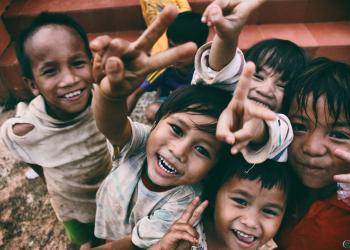Migration: A Chance to Reflect on Global Well-Being
Present day national level structures can no longer hope to adequately address the issue of mass migration in an increasingly globalized world and require the development of structures through the collaboration and participation of all countries, a statement by the Baha'i International Community says.
The statement addressed to the Sixth Intergovernmental Negotiations on the Global Compact for Migration, calls for a "profound, dispassionate and collective reflection on the underlying conditions that have caused the mass movement of populations." and stresses the urgent need to reexamine systems, structures, policies and attitudes surrounding migration.
"Resolving the crisis requires the development of structures able to address the situation globally, through the collaboration and participation of all regions and countries involved," the statement reads.
"Mass migration has challenged us to look beyond the nation state, to perceive the world from a global perspective and has heightened our awareness of the interconnectedness of humanity. Indeed, “in a world of interdependent peoples and nations the advantage of the part is best to be reached by the advantage of the whole.”
The global compact for migration will be the first, inter-governmentally negotiated agreement, prepared under the auspices of the United Nations, to cover all dimensions of international migration in a holistic and comprehensive manner.
The Baha’i International Community has been participating in consultations and intergovernmental negotiations around the Global Compact for Migration (GCM) and Global Compact for Refugees (GCR).
Read the statement here.
____
Active in various global fora, the Baha’i International Community maintains representational offices to the UN in New York and Geneva, as well as regional offices in Addis Ababa, Brussels, and Jakarta.
The Baha’i International Community registered with the UN as an NGO in 1948 and currently has consultative status with the United Nations Economic and Social council (ECOSOC) and the United Nations Children's Fund (UNICEF), as well as accreditation with the United Nations Environmental Program (UNEP) and the United Nations Department of Public Information (DPI).
